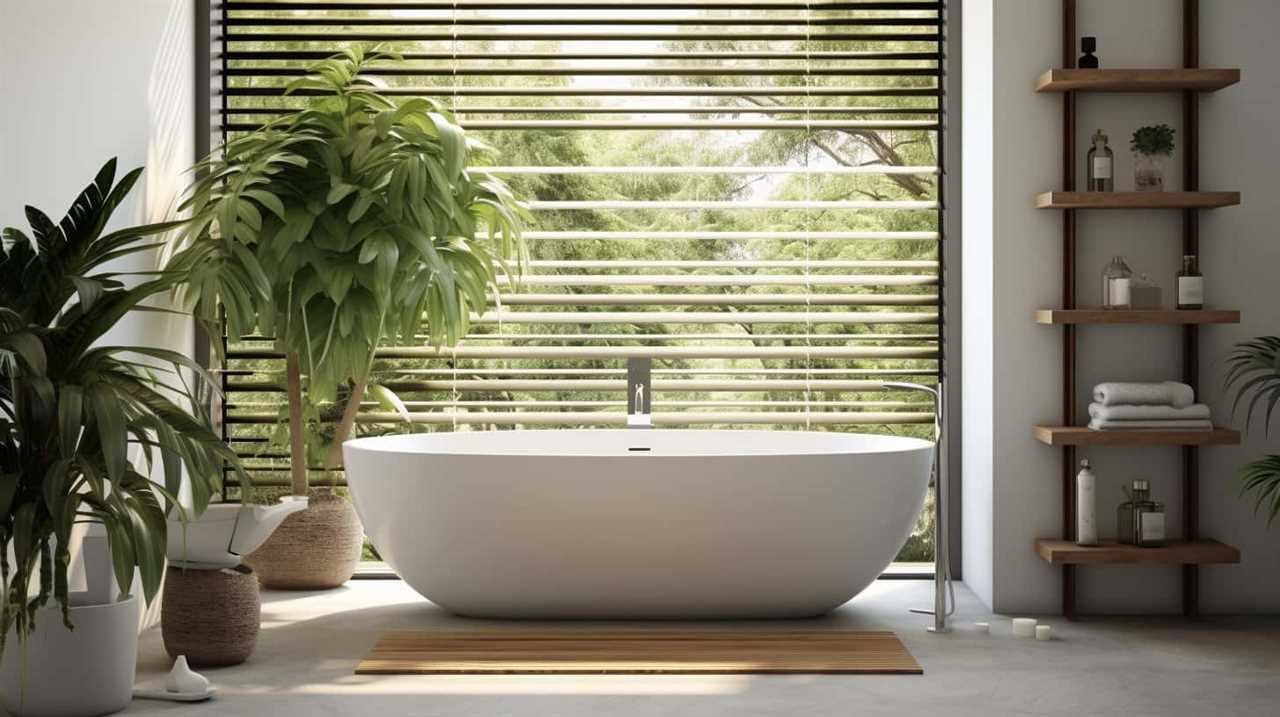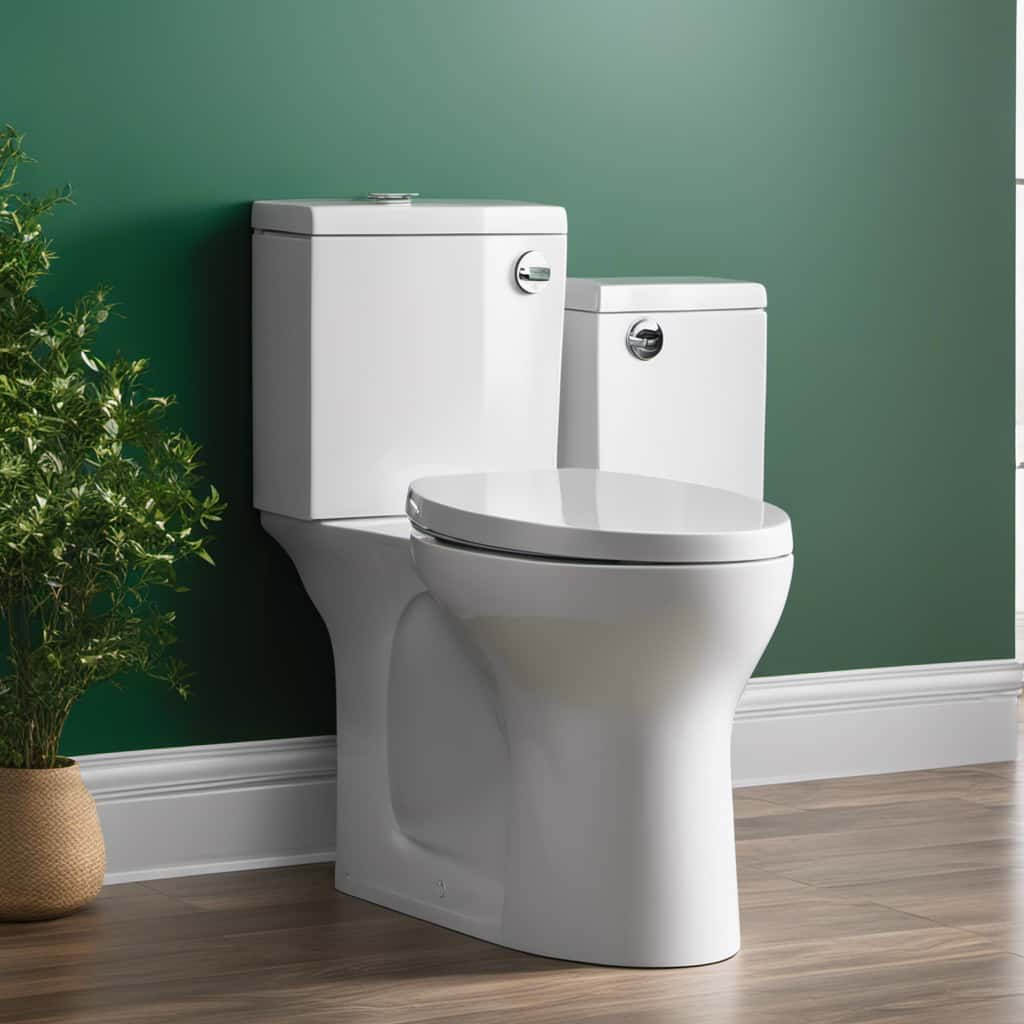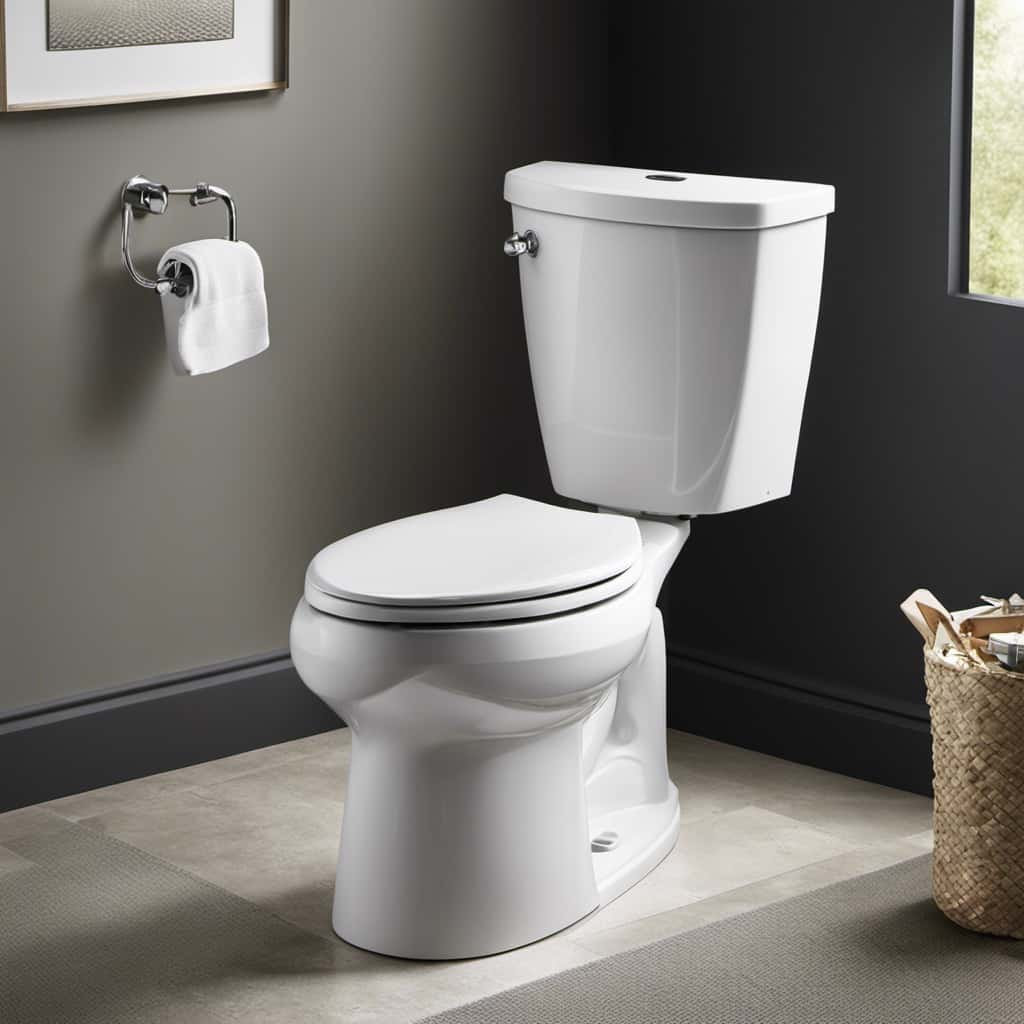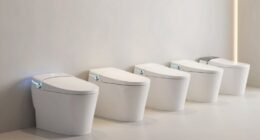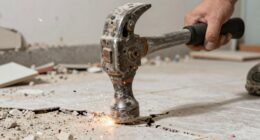Many times, homeowners do not realize the significance of electrical safety in their bathrooms.
But did you know that having a dedicated circuit for your bathroom is crucial? Neglecting this essential precaution can lead to potential risks and hazards.
In this article, we will explore the benefits of having a separate circuit for your bathroom, discuss common electrical appliances found in bathrooms, and provide guidance on how to determine if your bathroom needs its own circuit.
Let’s ensure a safe and efficient bathroom experience.

Key Takeaways
- Installation of GFCI outlets and lighting fixtures rated for wet locations is essential to comply with electrical safety regulations in bathrooms.
- Having a dedicated bathroom circuit reduces the risk of overloading and eliminates fire hazards from extension cords or power strips.
- Not having a separate circuit can lead to overloading, tripping breakers, and potential electrical fires due to the simultaneous use of multiple appliances.
- To determine if a bathroom needs its own circuit, consider the electrical load and usage of appliances, evaluate the power demands, and ensure compliance with the electrical code’s requirement for a dedicated 20-amp circuit.

Leviton GFCI Outlet, 15 Amp, Self Test, Non Tamper-Resistant with LED Indicator Light, Protection from Electric Shock and Electrocution, GFNT1-W, White
Designed to improve immunity for reduced High Frequency (HF) nuisance tripping. providing increased compatibility with appliances and other…
As an affiliate, we earn on qualifying purchases.
As an affiliate, we earn on qualifying purchases.
Electrical Safety Regulations for Bathrooms
We should always adhere to electrical safety regulations when it comes to bathrooms.
One important aspect of electrical safety in bathrooms is the installation of GFCI (Ground Fault Circuit Interrupter) outlets. GFCI outlets are designed to protect against electrical shocks and are required by electrical codes in bathrooms. These outlets have built-in sensors that detect any imbalance in the electrical current and immediately shut off the power to prevent accidents.
Another crucial aspect of electrical safety in bathrooms is meeting the electrical code requirements for bathroom lighting. Electrical codes specify the type of lighting fixtures that can be used in wet areas, such as bathrooms. These fixtures must be rated for wet locations to ensure that they can withstand moisture and prevent any potential electrical hazards.

HALO HLB 6 in LED Recessed Lighting Canless Dimmable Wet Location Selectable Lumens and Selectable Color 27/30/35/40/5000K Indoor Outdoor Soffit Ceiling Downlight HLB6LSFS5
DESIGN: Ultra-slim 6 inch led recessed lighting with canless construction eliminates housing requirements, featuring less than 1/2 inch…
As an affiliate, we earn on qualifying purchases.
As an affiliate, we earn on qualifying purchases.
Benefits of Having a Dedicated Bathroom Circuit
Having a dedicated bathroom circuit provides numerous advantages for electrical safety and convenience.

One of the main benefits is the increased safety it offers. By having a separate circuit solely dedicated to the bathroom, the risk of overloading the circuit is significantly reduced. This is especially important in bathrooms where multiple electrical devices, such as hairdryers, curling irons, and electric razors, are used simultaneously.
Additionally, a dedicated circuit eliminates the need for extension cords or power strips, which can be potential fire hazards.
Another advantage is the convenience it provides. With a dedicated circuit, you can have all your bathroom electrical devices connected and ready to use, without having to worry about tripping breakers or causing power outages in other parts of the house.

Siemens Q120 20-Amp Single Pole Type QP Circuit Breaker
Single pole, 20 Amp, 120V type QP Circuit Breaker
As an affiliate, we earn on qualifying purchases.
As an affiliate, we earn on qualifying purchases.
Potential Risks of Not Having a Separate Circuit
Not having a separate circuit for the bathroom poses significant safety risks. One of the main risks is the potential for overloading the circuit. Bathrooms often have multiple electrical appliances running simultaneously, such as hairdryers, curling irons, and electric shavers. Without a dedicated circuit, the increased power demand can overload the existing circuit, leading to circuit breakers tripping or even causing electrical fires.

To illustrate the risks more clearly, let’s look at the following table:
| Electrical Appliance | Power Rating (Watts) |
|---|---|
| Hairdryer | 1500 |
| Curling Iron | 1000 |
| Electric Shaver | 50 |
Assuming all three appliances are being used at the same time, the total power demand would be 2550 watts. If these appliances are connected to a circuit that already has other loads, such as lights or outlets in other rooms, the circuit may become overloaded, leading to potential safety hazards.
To mitigate these risks, it is crucial to have a separate circuit for the bathroom. Additionally, installing Ground Fault Circuit Interrupter (GFCI) protection is highly important. GFCI protection detects any imbalance in the electrical current and rapidly shuts off power, preventing electrical shocks and potential electrocution.
Understanding the potential risks of not having a separate circuit and the importance of GFCI protection sets the stage for exploring the common electrical appliances found in bathrooms.


Safety 1st Safety Essentials Kit , White , 1 Count
Easy solutions to help you create a safer environment for your child
As an affiliate, we earn on qualifying purchases.
As an affiliate, we earn on qualifying purchases.
Common Electrical Appliances in Bathrooms
In a bathroom, there are several common electrical appliances that are often used simultaneously. These appliances include bathroom lighting and ventilation systems.
Bathroom lighting is essential for providing adequate illumination in the space. It helps us see clearly and perform tasks such as shaving or applying makeup.
Ventilation systems, on the other hand, help remove excess moisture and odors from the bathroom, ensuring a clean and fresh environment.
Both of these appliances require electricity to function properly. However, it’s important to note that using multiple electrical appliances simultaneously can put a strain on the circuit, leading to potential hazards such as overheating or electrical fires.

Therefore, it’s crucial to determine if your bathroom needs its own circuit to ensure the safe operation of these appliances.
How to Determine if Your Bathroom Needs Its Own Circuit
We can determine if our bathroom needs its own circuit by considering the electrical load and usage of the appliances in the space. The bathroom circuit requirements are set by the electrical code for bathroom circuits. According to the code, the bathroom should have a dedicated 20-amp circuit to safely handle the power demands of the appliances in the space. To determine if your bathroom meets this requirement, you need to assess the electrical load of the appliances you use. This can be done by calculating the wattage of each appliance and adding them up. If the total wattage exceeds 80% of the circuit capacity (which is 2400 watts for a 20-amp circuit), it is advisable to have a dedicated circuit installed to ensure safe and efficient operation.
To help you understand the electrical load of common bathroom appliances, refer to the table below:
| Appliance | Wattage |
|---|---|
| Hair Dryer | 1500 watts |
| Electric Shaver | 15 watts |
| Electric Toothbrush | 5 watts |
Frequently Asked Questions
What Are the Specific Electrical Safety Regulations That Apply to Bathrooms?
When it comes to bathroom wiring, it is important to consider the specific electrical code regulations in order to ensure safety. These regulations outline the requirements for outlets, lighting, and ventilation in bathrooms.
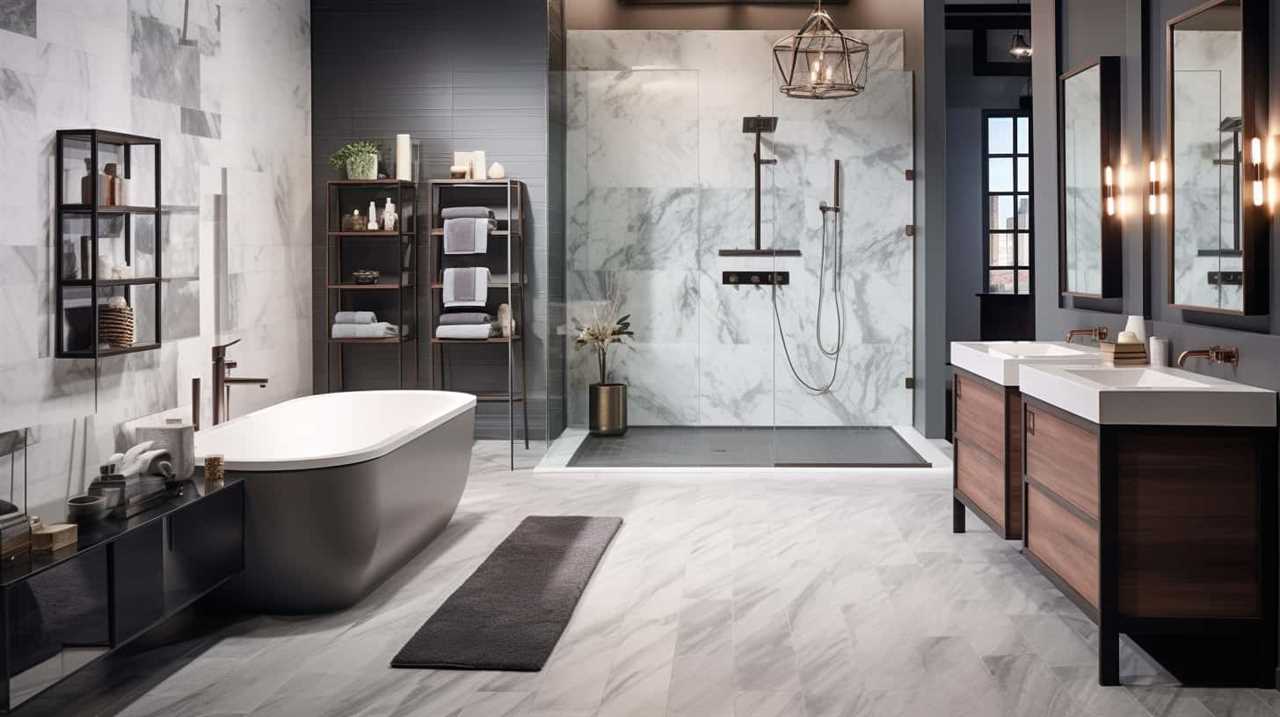
How Does Having a Dedicated Bathroom Circuit Benefit the Overall Electrical System in a Home?
Having a dedicated bathroom circuit provides several benefits for the overall electrical system. It ensures that the bathroom’s electrical needs are met without overloading other circuits, improves safety, and allows for proper functioning of all bathroom appliances and fixtures.
What Are the Potential Risks or Consequences of Not Having a Separate Circuit for the Bathroom?
Not having a separate circuit for the bathroom can lead to potential risks and consequences. It is important to consider the electrical load and safety requirements, as inadequate wiring can result in power failures or even electrical hazards.
What Are Some Common Electrical Appliances That Are Typically Found in Bathrooms?
Common electrical appliances found in bathrooms include hair dryers, curling irons, electric toothbrushes, and electric shavers. It is important to note that electrical safety regulations for bathrooms require separate circuits for these appliances.
What Factors Should Be Considered When Determining if a Bathroom Needs Its Own Circuit?
When determining if a bathroom needs its own circuit, factors such as electrical load and safety regulations must be considered. These play a crucial role in ensuring the efficient and safe operation of bathroom appliances.

Conclusion
In conclusion, it’s crucial to have a dedicated circuit for your bathroom to ensure electrical safety and prevent potential risks. Without a separate circuit, the use of common electrical appliances in the bathroom can overload the existing circuits, leading to dangerous situations.
By having a dedicated bathroom circuit, you can enjoy the benefits of uninterrupted power supply and reduce the risk of electrical hazards.
Don’t wait for a shocking surprise, make sure your bathroom has its own circuit to keep you safe.
